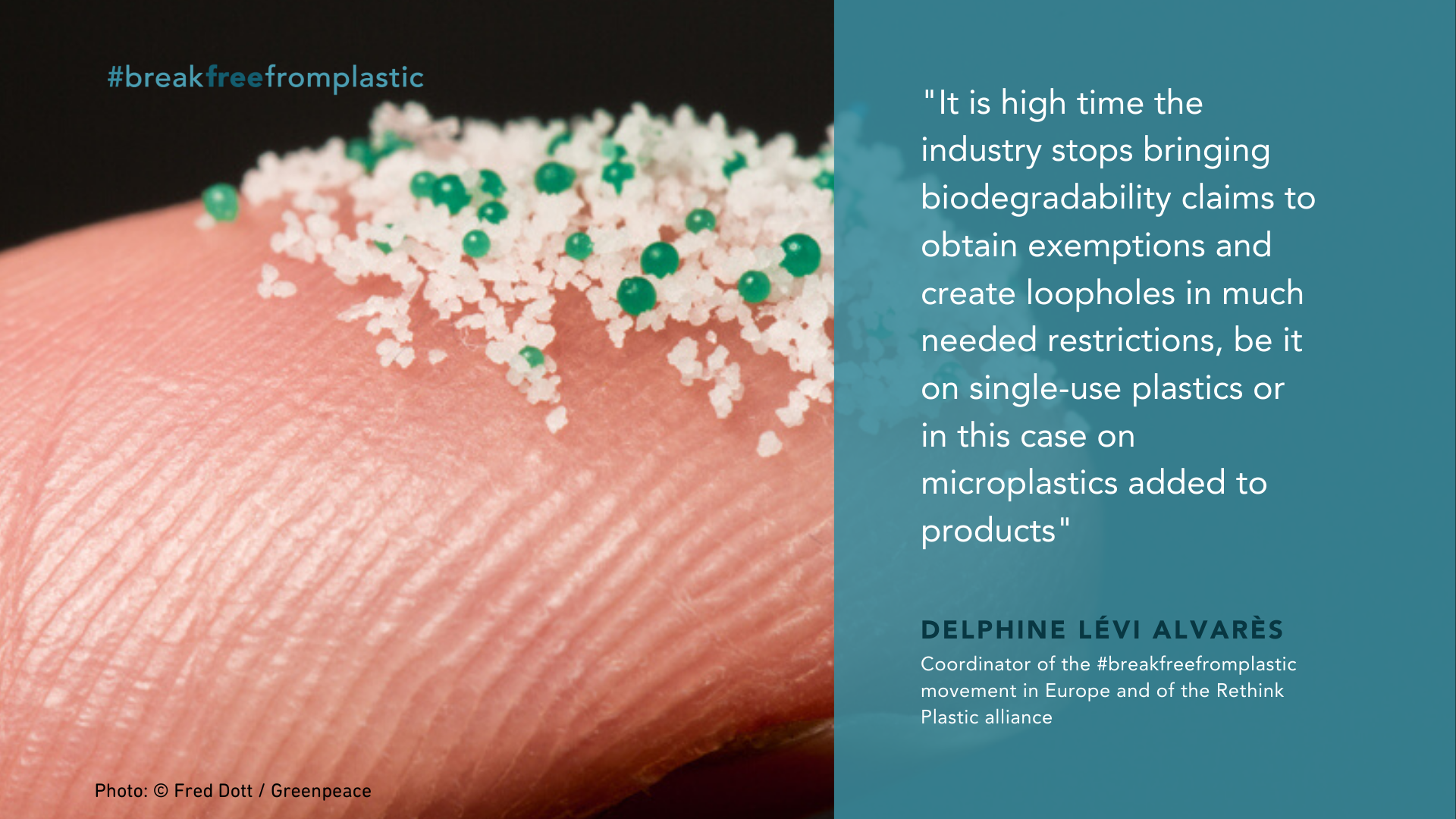For Immediate Release, Brussels
There are major concerns that proposed limitations to the European Chemicals Agency’s (ECHA) restriction on intentionally added microplastics act as loopholes to satisfy industry, by delaying implementation and creating derogations for biodegradable plastics. Comments from the industry lobby in the ECHA public consultation on microplastics are aimed at undermining the core purpose of the restriction rather than contributing to meaningfully addressing the issue of microplastic pollution.
The latest European Chemicals Agency proposal to restrict all intentionally added microplastics has generally received strong support from NGOs across many sectors. In letters to national governments, 32 NGOs together with the #breakfreefromplastic movement of more than 1,800 organisations, and the Rethink Plastic alliance, reiterated this support, while raising major concerns on derogations and unnecessary delays in a letter addressed to national environment ministers and relevant agencies on Tuesday. They call on the Commission and Member States to address these concerns and move the restriction process forward without delays or derogations.
Once released in the environment, microplastics are practically impossible to remove, and are expected to be present in the environment for hundreds, possibly thousands, of years, with severe and well documented effects on the environment. The scientific data gathered by ECHA in the report backing the need for a restriction is unequivocal: microplastics constitute a serious risk to the environment, and are a source of pollution that is currently, and undeniably, out of control.
In particular proposed derogations for allegedly biodegradable microplastics and the extended transitional periods are highlighted as undermining the prevention of microplastic pollution, and lacking in scientific basis.
Elise Vitali, Chemicals Project Officer at the European Environmental Bureau said “The restriction proposal is a big step forward. But if passed as it stands, this plan would seriously jeopardise the EU’s reputation as a leader in the fight against plastic pollution. It is a matter of urgency that these unjustifiable loopholes are closed, and that the restrictions are applied to all intentional microplastics in a concise timeframe.”
Delphine Lévi Alvarès, Coordinator of the #breakfreefromplastic movement in Europe and of the Rethink Plastic alliance said “It is high time the industry stops bringing biodegradability claims to obtain exemptions and create loopholes in much needed restrictions, be it on single-use plastics or in this case on microplastics added to products. If it is even slightly serious about contributing to solving the plastic crisis, the industry should rather focus its efforts on redesigning and removing all intentionally added microplastics from Industry products”.
ENDS
NOTES
- Read the full letter sent to EU ENVI Committee members and REACH competent authorities
- Read the NGOs Position For An Impactful Restriction Of Microplastics
- ECHA Annex XV Restriction Report Proposal for a Restriction on Intentionally Added Microplastics
Press Contacts:
Matt Franklin
European Communications Officer, Break Free From Plastic
matt@breakfreefromplastic.org - +44 7923 37 38 31
Alice Bernard
Chemicals Lawyer, Client Earth
ABernard@clientearth.org - 0032 (0)2 808 8015




